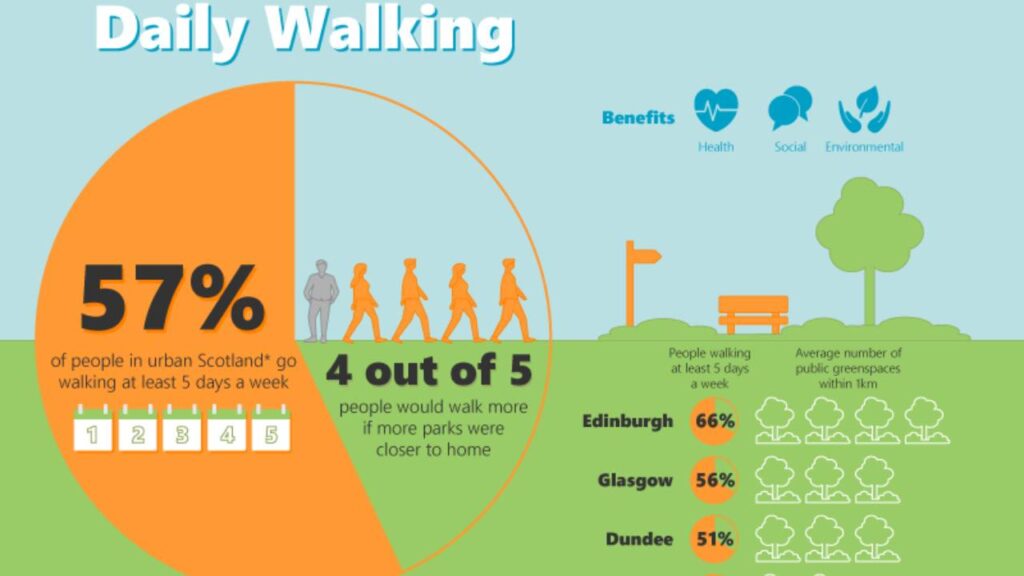Living a fit and joyful life goes far beyond chasing a particular body shape or dropping a few pounds. It involves integrating physical strength, emotional balance, mental clarity, and consistent energy into your everyday routine. When these areas align, they create a vibrant and balanced life. Instead of viewing fitness as a rigid goal, consider it a natural result of meaningful, science-backed habits.

Because your body and brain function best under consistent, positive stimulation, small daily actions can lead to remarkable long-term transformation. Furthermore, scientific studies support this holistic approach, confirming that balanced habits create sustainable change. As we dive deeper, you’ll learn how to implement these daily steps effectively. Each habit—whether physical, mental, or emotional—serves as a building block for a more joyful and energized life.
Therefore, when you embrace this lifestyle, your fitness journey shifts from effortful to effortless. Moreover, these practices don’t require hours at the gym or strict diets. Instead, they demand daily awareness, mindful movement, and nurturing nutrition. Through the following sections, you’ll discover powerful insights to elevate your well-being—biologically, psychologically, and emotionally.
Additionally, by understanding the brain’s role in behavior and the body’s reaction to consistency, you’ll see how quickly your life can change. Along the way, we will also uncover how your morning sets the tone, how walking boosts metabolism, and why hydration matters more than you think. And yes, we’ll highlight simple actions that carry deep scientific support.
Ultimately, it’s not about perfection. It’s about progress, purpose, and presence. Let’s begin this path to holistic fitness with intention.
The Science Behind Daily Fitness and Habit Formation
Daily Steps Offer Lasting Impact
Although occasional intense workouts can be useful, daily moderate movement leads to more sustainable health improvements. When you move consistently, you stimulate your muscles, oxygenate your blood, and activate brain chemicals that improve focus and mood. Also, movement regulates stress hormones and increases your sense of vitality throughout the day.
According to a pivotal study in the Journal of Physical Activity and Health, individuals who take consistent steps daily experience better blood sugar control, improved immune response, and lower inflammation markers. Consequently, this lowers the risk of chronic conditions like diabetes and heart disease. Furthermore, daily movement enhances energy balance by promoting efficient calorie usage and reducing fatigue.
In contrast, sedentary behavior—even with weekly gym sessions—slows metabolism and impairs insulin sensitivity. Hence, it’s not just about exercising hard a few times a week. It’s about engaging in small, frequent bursts of physical activity that keep your system optimized and in balance.
Whether you walk during lunch, take the stairs, or stretch between meetings, each movement adds up. In time, these repeated actions create long-term health and performance benefits.
Habits Rewire the Brain Through Neuroplasticity
Every time you repeat a positive behavior, you strengthen the brain’s neural pathways associated with it. This process, known as neuroplasticity, makes it easier to maintain habits over time. As you continue, the brain adapts and forms connections that make these habits feel automatic.
Moreover, consistent actions activate the basal ganglia, a deep brain structure responsible for routine behaviors. When the basal ganglia engage, you perform tasks without mental resistance. For example, waking up early becomes easier, and you begin to crave your morning walk or healthy meal.
Neuroplasticity supports the belief that change doesn’t require massive effort—it requires repetition. Even more exciting, research shows that just 21 days of repeated action can start forming a new habit loop in the brain. And with enough reinforcement, your habits transition from conscious efforts to effortless routines.
In addition, emotional rewards play a crucial role. When you feel proud after exercising or energized after a healthy breakfast, dopamine is released. This neurotransmitter creates a sense of pleasure and reinforces the behavior. Over time, you begin to seek that feeling again, naturally repeating the action.
Therefore, you can literally rewire your brain to crave fitness and wellness. And all it takes is consistent, simple steps repeated daily.
Morning Routines That Supercharge Your Day
Begin the Day With Purpose and Light
How you start your morning significantly affects your body’s biological rhythm and mental state. When you expose yourself to natural sunlight within 30 minutes of waking, your circadian clock resets. This clock controls your sleep-wake cycle, hormone release, and digestion patterns. Additionally, sunlight exposure increases serotonin production, boosting mood and motivation.
Next, pair this light exposure with light movement. Stretching for five to ten minutes boosts blood circulation, reduces joint stiffness, and increases oxygen delivery to the brain. These quick actions activate your parasympathetic nervous system, calming the mind and preparing it for focused tasks.
Because mornings carry a fresh mental slate, you can also use this time to set your intentions. Practicing gratitude or deep breathing encourages emotional resilience. As a result, your mindset becomes grounded, clear, and ready to embrace the day’s challenges with calm energy.
Moreover, creating a consistent morning routine programs your brain to expect clarity, movement, and peace upon waking. This consistency builds momentum, leading to more productive and healthier decisions throughout the day.
Hydration Awakens Your System
Although often overlooked, morning hydration plays a foundational role in your physical and mental performance. Overnight, your body loses water through respiration and metabolic activity. This dehydration can impair concentration, slow digestion, and strain your kidneys and liver.
However, drinking 16–20 ounces of water upon waking replenishes these lost fluids. Furthermore, it reactivates your metabolism, flushes out toxins, and primes the digestive system. By doing so, you prepare your body for nutrient absorption and cellular repair.
Beyond these physical benefits, hydration also affects mood and brain function. Even mild dehydration reduces cognitive performance, memory retention, and energy. On the contrary, staying well-hydrated keeps you alert, focused, and emotionally balanced.
For enhanced benefits, consider adding lemon or a pinch of sea salt to your water. This provides trace minerals and supports electrolyte balance. Also, drinking warm water can aid digestion by stimulating gastrointestinal motility.
Integrating this simple habit into your routine ensures a smoother start and supports every bodily function. And when combined with movement and mindfulness, it becomes a powerful wellness trifecta.
The Science of Nutrition: Daily Choices That Add Up
Nutrition forms the backbone of a joyful, energetic life. While movement shapes the body, food fuels every internal function. Daily dietary choices influence your mood, weight, metabolism, and long-term health. Even more importantly, science confirms that consistent, nutrient-rich eating patterns enhance cellular repair, brain clarity, and emotional resilience. By combining mindful food choices with movement, you can unlock long-lasting vitality.
Let’s explore how strategic nutrition—especially at the start of your day—can transform both biological and psychological well-being.
The Power of a Protein-Rich Breakfast
Mornings offer the best opportunity to fuel your body for the hours ahead. However, many skip breakfast due to time constraints or dieting misconceptions. Unfortunately, skipping meals destabilizes blood sugar, heightens cortisol, and increases hunger hormones. In contrast, a high-protein breakfast stabilizes energy levels and curbs mid-morning cravings.
Scientific studies, such as those in the journal Obesity, demonstrate that meals rich in protein (20–30 grams) reduce levels of ghrelin, the hormone responsible for hunger. This reduction enhances satiety and reduces calorie intake throughout the day. Moreover, protein increases thermogenesis, meaning your body uses more energy to digest it. As a result, metabolism receives a natural boost.
You can choose from a variety of protein-rich sources, such as eggs, Greek yogurt, cottage cheese, tofu, or protein smoothies. When paired with fiber-rich carbs and healthy fats, these meals also improve brain function and regulate mood. Additionally, eating within 90 minutes of waking supports circadian rhythms and hormonal regulation.
Furthermore, beginning your day with protein sends a signal to the brain that energy is available. This signal boosts dopamine production, enhancing motivation, clarity, and productivity. Consequently, you’ll experience fewer energy crashes and better control over food choices later.
Incorporating Nutrient-Dense Foods
Not all calories are created equal. While fast foods and refined sugars may satisfy immediate cravings, they offer little nutritional benefit. Whole, nutrient-dense foods, on the other hand, nourish your body at the cellular level. These foods contain the building blocks for repair, growth, and cognitive performance.
Leafy greens like spinach and kale deliver vital minerals, antioxidants, and chlorophyll. Meanwhile, berries provide flavonoids that improve brain plasticity and memory. Fatty fish, such as salmon or sardines, contain omega-3s that support heart health and reduce inflammation. Nuts and seeds offer magnesium, fiber, and essential fatty acids—all linked to improved mood and longevity.
Moreover, eating the rainbow ensures you receive a spectrum of phytonutrients. These natural compounds enhance immunity, detoxification, and even DNA repair. As you build meals around real, whole foods, you’ll notice improved digestion, more sustained energy, and better skin tone.
Transitioning to a nutrient-rich diet doesn’t require perfection. Instead, start small—add greens to your smoothie, swap chips for almonds, or include colorful veggies with lunch. Over time, your palate adjusts, and these nutrient-dense choices become natural habits.
Additionally, by nourishing your cells, you reduce cravings, boost serotonin, and foster emotional resilience. Hence, food becomes medicine—delicious, functional, and transformative.
Gut Health Is Brain Health
Your gut is not just a digestion center—it’s your second brain. Astonishingly, over 90% of serotonin receptors reside in the gastrointestinal tract. Because serotonin regulates mood, sleep, and appetite, your gut health has a direct impact on emotional and mental balance.
Diverse gut flora promotes balance between pro-inflammatory and anti-inflammatory states. When you include prebiotic-rich foods like onions, garlic, asparagus, and bananas, you feed beneficial bacteria. Likewise, fermented foods—like yogurt, kefir, sauerkraut, and kimchi—supply living probiotics that colonize your gut and enhance digestive resilience.
Furthermore, gut bacteria produce neurotransmitters, vitamins, and enzymes that support immunity and brain health. An imbalanced gut can lead to anxiety, irritability, bloating, and nutrient malabsorption. On the flip side, when your microbiome flourishes, you think clearly, sleep soundly, and feel emotionally stable.
To support gut-brain harmony, avoid ultra-processed foods, excess sugar, and unnecessary antibiotics. Instead, hydrate well, consume fiber daily, and eat fermented foods regularly. Additionally, managing stress through meditation or walking also helps maintain microbial diversity.
Ultimately, your brain and gut form a two-way street. When one thrives, the other follows.
Midday Movement and Micro-Workouts
Combatting Sedentary Behavior
Many people spend 8–10 hours sitting daily, especially when working at a desk. While this pattern may feel normal, research shows prolonged sitting slows metabolism, weakens muscles, and raises the risk of chronic illness.
Yet, you don’t need long gym sessions to reverse this. Micro-workouts—small five-minute bursts of movement—deliver measurable health gains. For example, 20 squats, a set of push-ups, or a quick stair climb reactivates circulation and increases oxygen delivery to the brain.
Studies confirm that regular micro-movement throughout the day improves insulin sensitivity, reduces fatigue, and enhances cognitive performance. Furthermore, these exercises stimulate lymphatic drainage, supporting detoxification and reducing inflammation.
Moreover, taking intentional breaks also boosts productivity. When you return to your desk, you’ll feel sharper, more energized, and mentally refreshed. Combine movement with breathwork or stretching, and you create a synergy that calms the mind and revitalizes the body.
Walking: The Underrated Superpower
Despite its simplicity, walking offers exceptional benefits. It improves cardiovascular health, regulates blood pressure, and enhances glucose metabolism. According to findings in the American Journal of Preventive Medicine, walking just 30 minutes a day lowers depression risk and extends lifespan.
Post-meal walks offer unique advantages. They reduce blood sugar spikes, promote digestion, and increase fat oxidation. Additionally, walking in nature or with a loved one encourages mindfulness, boosts creativity, and reduces cortisol levels.
You can integrate walking by parking farther, taking walking meetings, or strolling after meals. Furthermore, using a step tracker adds motivation and gamifies the process. Aim for 8,000–10,000 steps, but even 3,000–5,000 daily steps create noticeable change.
Most importantly, walking helps you reconnect with your body and surroundings. It’s meditative, healing, and entirely free.
Strength Training for Longevity
Muscle Is the Organ of Longevity
Muscle mass determines more than just strength—it predicts metabolic rate, bone density, and overall health span. Starting around age 30, individuals lose 3–5% of muscle per decade. This decline, known as sarcopenia, increases frailty, insulin resistance, and injury risk.
To counteract this, daily strength exercises like bodyweight squats, resistance bands, or light weights stimulate muscle protein synthesis. In doing so, they also support mitochondrial health—the energy factories of your cells. Strong muscles demand energy, improve posture, and enhance mobility.
Moreover, strength training increases bone density and prevents osteoporosis. Especially for women post-menopause, lifting weights preserves both skeletal and hormonal health. Unlike cardio, which burns calories during activity, muscle continues to burn calories at rest.
You don’t need a gym membership or bulky equipment. Start with planks, push-ups, lunges, or yoga. As your confidence grows, gradually increase intensity. The key is to stay consistent and progressive.
Hormonal Harmony Through Resistance
Hormones govern metabolism, mood, and energy levels. Strength training has been shown to increase testosterone, human growth hormone (HGH), and insulin sensitivity. These shifts enhance fat loss, cognitive clarity, and libido.
Resistance exercise also reduces cortisol, your primary stress hormone. As a result, your nervous system becomes more resilient. Additionally, the dopamine released during strength sessions improves motivation and reward sensitivity.
When performed consistently, strength training becomes a natural mood stabilizer and energizer. Unlike stimulants, it delivers real, long-lasting changes. Even 15 minutes per day can yield incredible hormonal benefits.
In conclusion, daily movement and mindful nutrition aren’t just lifestyle choices—they’re biological imperatives. By incorporating protein-rich meals, whole foods, micro-movements, walking, and strength training, you enhance every system in your body. And with each step, you build a life filled with joy, strength, and sustainable vitality.

The Crucial Role of Mental Fitness
Mindfulness Rewires the Brain
Mental fitness is as vital as physical movement. Practices like meditation, breathwork, and visualization activate the prefrontal cortex while shrinking the amygdala (the brain’s stress center). This neurological rewiring reduces anxiety, improves decision-making, and fosters emotional stability.
Journaling and Emotional Release
Writing for just five minutes a day can significantly lower cortisol levels and improve emotional regulation. Neuroscience confirms that expressive journaling strengthens neural connections related to self-awareness and emotional processing, making it easier to navigate challenges with grace.
Recovery: The Hidden Pillar of Fitness
Prioritize Quality Sleep
Without restorative sleep, no amount of exercise or nutrition can create sustainable wellness. Sleep is when the body repairs, hormones rebalance, and the brain consolidates memory. Practicing a sleep ritual—like reducing screen time, using magnesium-rich teas, and maintaining consistent sleep times—ensures deeper, high-quality sleep cycles.
Active Recovery Techniques
Stretching, foam rolling, and low-impact activities like yoga promote blood circulation and fascia health. These practices not only prevent injury but also stimulate the parasympathetic nervous system, helping your body shift from stress mode to recovery mode.
Building an Environment That Supports Fitness
Social Influence and Accountability
Your environment plays a critical role in habit retention. Surrounding yourself with people who prioritize health can significantly enhance your own motivation and consistency. Whether through fitness groups, online communities, or workout partners, social support activates the reward centers in your brain and fosters habit sustainability.
Design Your Space for Movement
Simple tweaks in your environment—like keeping workout gear visible, setting movement reminders, or using standing desks—can subconsciously prompt more physical activity. The science of behavioral design confirms that visual cues and ease of access directly influence behavioral compliance.
Emotional Rewards and Motivation Loops
The Dopamine Feedback Loop
Every time you achieve a small fitness goal, your brain releases dopamine—the feel-good neurotransmitter. This chemical reward not only reinforces behavior but also creates anticipation, which further drives consistency. Structuring your day with achievable micro-goals ensures a steady flow of motivational rewards.
Linking Fitness With Joy
When fitness activities are associated with joy—like dancing, hiking in nature, or playing with pets—they activate the brain’s pleasure centers. This emotional connection makes it far more likely you’ll repeat the behavior, turning fitness from a chore into a celebration.
Nutrition and Hydration Throughout the Day
Balanced Snacking for Sustained Energy
Instead of skipping meals or indulging in sugar-laden snacks, opt for nutrient-rich combinations like Greek yogurt with nuts or sliced veggies with hummus. These balanced options prevent blood sugar spikes, support muscle recovery, and enhance focus through the afternoon slump.
Stay Hydrated With Intention
Even slight dehydration can impair cognitive function, mood, and exercise performance. Sipping water consistently throughout the day, infusing it with lemon or mint for flavor, and monitoring urine color for hydration levels can dramatically improve overall wellness.
Evening Rituals That Prepare You for Tomorrow
Wind Down With Purpose
As the day concludes, it’s essential to transition the body and mind into a restful state. Dim the lights, listen to calming music, and reflect on your wins. Practicing gratitude in the evening enhances sleep quality, reduces anxiety, and promotes emotional balance.
Tech Detox for Melatonin Regulation
The blue light from screens suppresses melatonin, the hormone responsible for sleep induction. Turning off devices an hour before bed helps your brain initiate sleep more efficiently, promoting deeper and more restorative rest.
Take care of your body. It’s the only place you have to live.
Jim Rohn
Final Thoughts: A Joyful Path to a Fit Life
Living fit isn’t about extremes or perfection—it’s about choosing alignment each day. With science-backed habits, mindfulness, and self-compassion, you can effortlessly integrate fitness into your life. By understanding the biological and emotional feedback loops behind your daily choices, you transform not just your body but your entire life experience.
So start today. Stretch a little. Sip some water. Take a walk. Breathe deeply. Celebrate the joy of movement, nourishment, and purpose. Because when you live fit daily, you don’t just extend your life—you enrich it.


